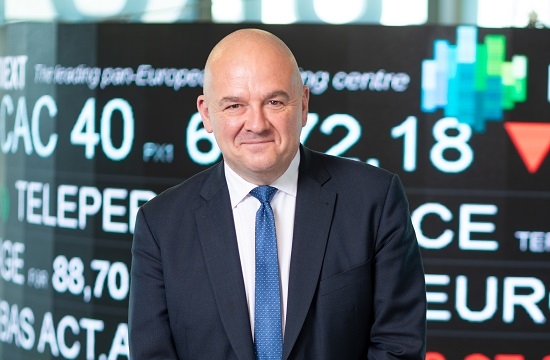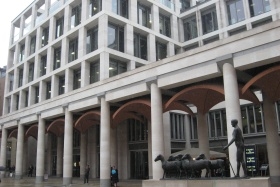French connection
Fimat, especially in London, has seen strong growth in its financial futures execution business. How do you plan to capitalise on that, and do you plan on expanding into other product areas?
It is true that we are now one of the biggest players in the London market and have really changed gear after the acquisition of Cube Financial we have increased our volume significantly in Liffe, Eurex and US markets. We have also started to consolidate in certain areas such as index options and we intend to capitalise on this success with stock options.
Fimat has strong businesses in both London and Chicago, generally the accepted derivatives centres. Your recent acquisition of Himawari CX's commodities business is in Japan, do you see this as the Asia equivalent?
It is important in terms of growing our presence in Asia to have developed a long-standing ongoing relationship with Himawari. Our move into and developments in Asia also highlights that this is a period of Fimat being on
the offensive, and the same will apply with the advent of NewEdge. We are acquiring more brokers in that part of the world while also gaining more marketshare and growing our business there. This is being done in the same spirit that bought us growth in Europe and America.
Many Eastern exchanges are vying to become the gateway to Asia. Is that a sound principle or do you think there will be many gateways?
I supervise the development of Fimat's European zone, so I am not the expert on Asia, but it is clear that Hong Kong, Sydney and Tokyo are already strong and China is emerging fast. Therefore, as far as I can see it will be some time before there is any clearly defined gateway for Asia. Fimat is present in all these places as well as Singapore, Taiwan and India so we are well placed to benefit our clients from future growth in that region
How do you view other emerging markets - Dubai, India, China, South America?
Fimat has been present in China and India for years and they are emerging fast, and we are opening an office in Dubai soon, in fact we are already members of the DGCX and the DME.
Consolidation in the derivatives industry has become rife among not only exchanges but FCMs also. Can you talk about the rationale behind FCM consolidation and the effect on FCMs of exchange consolidation?
I think the trend of consolidation within our industry shows no sign of slowing down. You only have to look at MF buying Refco, the creation of NewEdge or the buying of ABN by UBS to see this, and I don't think that in the FCM sector this is over. Five years ago there were maybe 15 top brokers worldwide. Today that number is probably ten. It will continue for two reasons.
Firstly, because of the consolidation we are seeing in the exchange sector, the FCM community has reacted accordingly.
Secondly, it is an industry that is becoming more and more mature and because of this there is pressure on commissions and huge competition and at the same time there is a need for expensive investments in IT to improve the security and robustness of our operations as well as increasing the speed of electronic execution, especially with the development of algorithmic trading. So, consolidation among FCMs is not over yet and over the next two years I think you will see more deals. I also wouldn't be surprised if we start to see deals between the IDB
We have recently seen forays by exchanges into more traditional OTC markets such as credit, weather, property etc. do you think these markets will be successful on exchange. And will Fimat participate?
It is difficult to say whether these will become successful initiatives. On paper they make a lot of sense. As with any new products on exchange we need liquidity for it to be successful. If liquidity is not in the hands of the prop firms or hedge funds then that will become decisive. This then raises the real question of who owns the liquidity? The exchange? The brokers? Or the end clients?
Personally I think it is the end clients, so you need the appetite and interest of the end clients and the distribution. These will not be successful if exchanges simply reproduce what they have done in the past believing that they own the liquidity. This is wrong. For example, for us in the role of executing broker with strong and long standing relationships with end-users, we are constantly generating ideas to 'price-taking' accounts which brings immense value to the exchange, in particular the support we provide the exchanges for their new products.
These relationships with end-users have elevated us in importance as we can create liquidity and direct open
interest. I feel the exchanges should
take note of this, especially of the ability to direct open interest, of course notwithstanding the best interests of our clients. Our continued ability to add value to our voice broked clients is reflected in our volumes for example out Eurex business has increased 60% year on year with other exchange volumes close behind.
Exchanges have recently come under fire due to their consultation process. Is this something that Fimat has concerns over, or think could be improved, if so how?
We have concerns, of course, that the relationship between exchanges and FCMs is drifting from working together for the success of this industry. Exchanges have been instrumental to the early development of the European financial landscape, but they should not underestimate the importance of the role played by FCMs in terms of distribution of their products and the security that we bring to the market. Some of the biggest generators of liquidity are the likes of hedge funds and professional trading groups and we tend to believe that we are helping these talented managers in the development of their business in providing them with clearing, cross margining and financing solutions. We are a large part of the game and I think in the future I see two possible directions we could go. One would be outright competition between exchanges and FCMs, the other would be a much closer cooperation between us if somehow exchanges recognise and value our contribution. I would much prefer the latter direction, obviously.
Does the idea of cross-border regulation, especially in light of new multi-national exchanges, appeal to you?
Clearly for us it would simplify our business and lower our costs. Today the two main problems we have is that we have to deal with multiple clearing systems from one country to another and various regulatory bodies and complicated tax regimes. This is another example where an FCM also adds value for its clients by simplifying cross-border transactions. However, I am not sure I will see regulation being totally harmonised in my working lifetime. I will probably witness that when I am in my rocking chair somewhere in the South West of France!
Given the prices of the recent listings of exchanges versus that of the MFG's latest floatation, which stumbled somewhat, how do you view the current market situation? Are we seeing derivatives continue to go through a boom period, or have we seen the last of the extraordinarily high IPOs?
I think we will see continuing interest in this area. I am optimistic over the growth of volume and activity. I know we have seen strong growth in the last five years but I think this will not stop. Both exchanges and FCMs will remain very highly priced for a few years yet.
What are your plans going forward for an IPO?
It is too early to comment on future plans for NewEdge.
Since the announcement of the creation of NewEdge, what is the new entity's plan for its management structure going forward?
As announced Patrice Blanc will be CEO and Rick Ferina will be Deputy CEO, and at the moment we are working on the integration of the business - there is a lot under construction at the moment.
Fimat has given a lot of effort towards growing its prime brokerage business in the last 12 months. Given how this sector has performed of late what growth have you seen in this sector and how do you expect to build on this?
This is a strong axis of development for us, we want to offer services on several asset classes OTC, equities, FX and debt products The plan is to build up our prime brokerage platform into a global operation, expanding outside Europe into the US and Asia. We have ambitious plans for this and although we arrived late in the market we are slowly and surely picking up more of the custom. In fact we are number seven in Europe in terms of mandate wins,so there is no reason why we can't take an even bigger slice of the pie going forwards.
Found this useful?
Take a complimentary trial of the FOW Marketing Intelligence Platform – the comprehensive source of news and analysis across the buy- and sell- side.
Gain access to:
- A single source of in-depth news, insight and analysis across Asset Management, Securities Finance, Custody, Fund Services and Derivatives
- Our interactive database, optimized to enable you to summarise data and build graphs outlining market activity
- Exclusive whitepapers, supplements and industry analysis curated and published by Futures & Options World
- Breaking news, daily and weekly alerts on the markets most relevant to you



